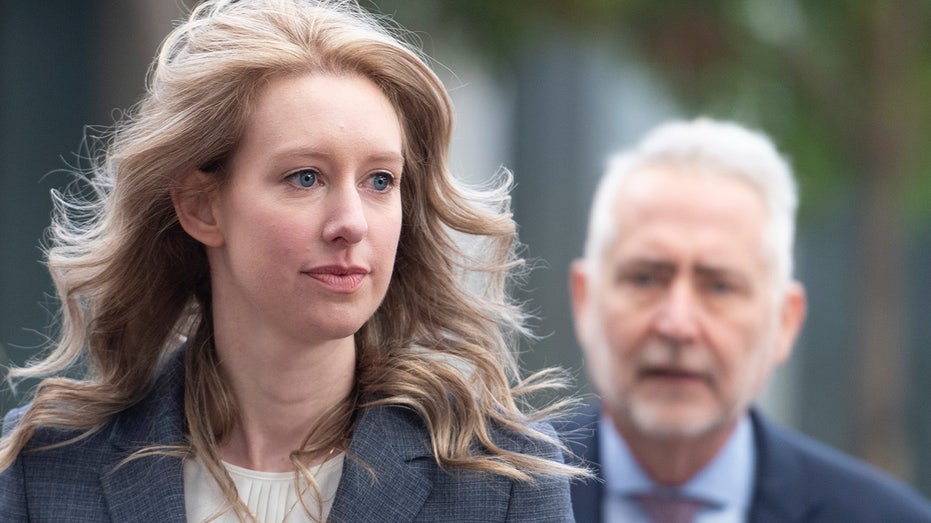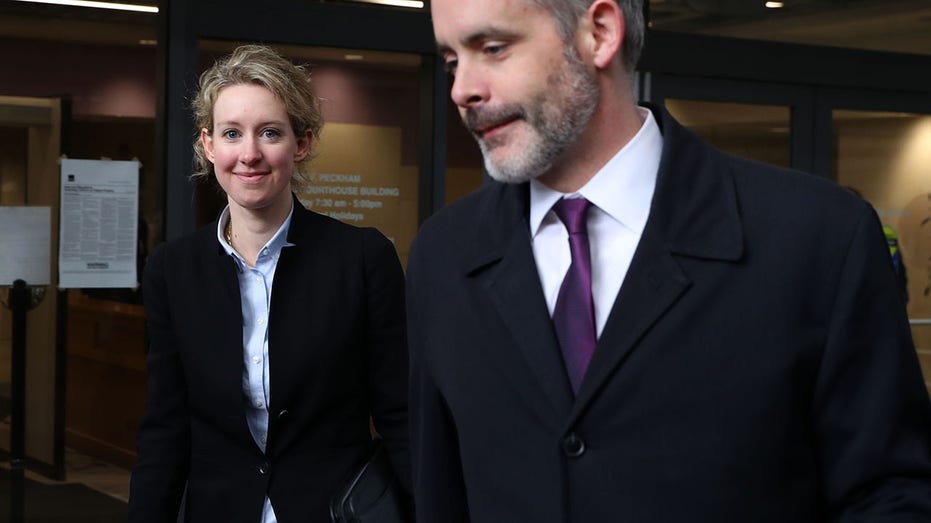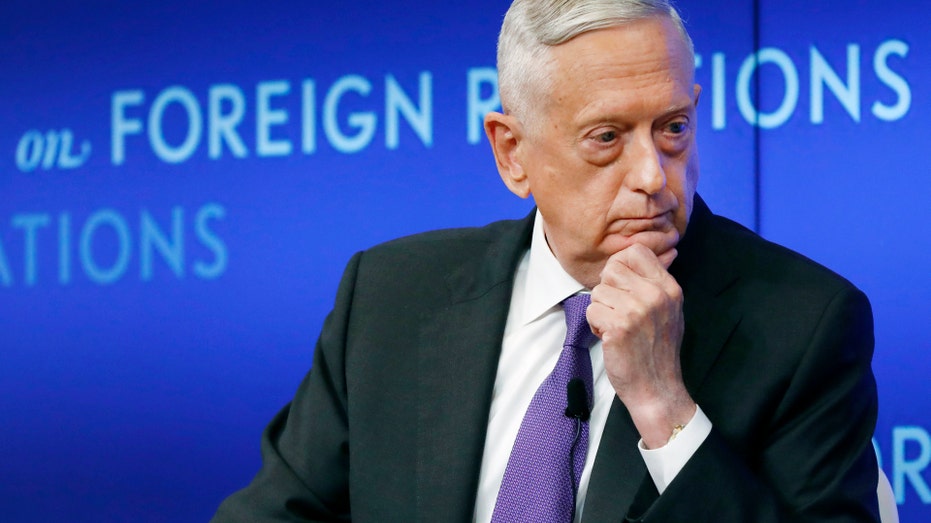Fox Business Flash top headlines for November 19
Check out what’s clicking on FoxBusiness.com.
As Elizabeth Holmes takes the stand in the criminal case against her, her testimony faces a challenge: persuading jurors that whatever her missteps, she didn’t intend to defraud.
Over 11 weeks of testimony, prosecutors in the Theranos Inc. founder’s trial presented a narrative of a CEO who repeatedly fabricated the successes of her technology as she built a blood-testing startup that ultimately failed. They now have to hope they convinced jurors her behavior rose to the level of criminal fraud.
The case, which the government rested on Friday, included testimony from angry investors, emotional former employees, disapproving scientists and a retired four-star general. It offered revelations not captured by the extensive media coverage of Theranos: forged documents, a previously unknown lab director who never visited the lab, and sound bites of Ms. Holmes touting the company to investors.
THE ELIZABETH HOLMES TRIAL: THERANOS FOUNDER TAKES THE STAND
And it illuminated how the company grew to a more-than-$9 billion valuation only to implode in 2018, losing most of the nearly $1 billion investors sank into it.
Ms. Holmes faces 11 counts of wire fraud and conspiracy. Each count carries a maximum sentence of 20 years in prison. Her defense on Friday launched its own case, calling two witnesses before bringing up Ms. Holmes, who often smiled as she offered a polished account of the early days of building Theranos with money from her parents and help from a Stanford University professor. Her testimony is expected to continue at least through Tuesday, when court ends for the week.

Elizabeth Holmes, founder and former CEO of Theranos, arrives for a motion hearing on Monday, Nov. 4, 2019, at the U.S. District Court House inside Robert F. Peckham Federal Building in San Jose, Calif. (Yichuan Cao/NurPhoto via Getty Images / Getty Images)
Prosecutors may have effectively laid out a series of untruths Ms. Holmes told, legal experts said, but their burden is to prove she intended to mislead and defraud others.
"These are hard cases to bring," said David Alan Sklansky, a law professor at Stanford University. "It goes to state of mind and the intent of the defendant. And if they are in an organization, they can argue they were relying on someone above them or below them in the chain."
Ms. Holmes’s lawyers have argued that her error was trusting her top deputy and ex-boyfriend, Ramesh "Sunny" Balwani, on whom she relied for information about the company. To the extent that any lie was told about Theranos, the defense has said, Mr. Balwani was the source. He faces his own trial next year on the same charges, and has denied the allegations against him.
The prosecution offered some strong evidence, say legal experts. It presented in court two documents that Ms. Holmes shared with business partners and investors that were emblazoned with the logos of pharmaceutical companies Pfizer Inc. and Schering-Plough Corp. Government witnesses testified that Theranos altered the documents to appear as if the companies had validated the startup’s technology, when in fact they had been critical and decided not to do business with Theranos.
In their cross-examinations, defense attorneys didn’t try to challenge the assertion that the documents had been altered.
DISGRACED EX-THERANOS CEO ELIZABETH HOLMES IS ASKING FOR TOO MUCH: PROSECUTORS
The jury also heard one of Theranos’s oft-repeated claims—which testimony showed was untrue—from Ms. Holmes herself when the prosecution played audio clips from a December 2013 phone call Ms. Holmes held with investors. In one snippet, Ms. Holmes told her financiers that Theranos had contracts with the military and was able to put its devices on medical-evacuation helicopters in the battlefield to save soldiers’ lives.
"Military is a big deal for us, and I can tell you confidentially a couple of the areas which we have been focused there," Ms. Holmes said in one recording.
In 2017 testimony to the Securities and Exchange Commission, Ms. Holmes confirmed that Theranos’s technology was never used by the military, on a medevac helicopter or otherwise. "The jurors can hear for themselves how this alleged fraud was really conducted," said criminal defense attorney Robert Mintz, who was a federal prosecutor for 10 years.
Several prominent public figures who were on the government’s list of potential witnesses were never called to testify, with the retired military general—former Defense Secretary Jim Mattis —the exception. The case also had briefer-than-expected patient testimony, underscoring the challenges the government faced in litigating the five indictments against Ms. Holmes that center on defrauding patients, said former prosecutors.

Former Theranos CEO Elizabeth Holmes and former COO Ramesh Balwani appeared in federal court facing charges of conspiracy and wire fraud for allegedly engaging in a multimillion-dollar scheme to defraud investors with the Theranos blood testing lab s
A pretrial ruling from U.S. District Judge Edward Davila limited patient testimony to exclude emotions patients felt around the tests. Tying Ms. Holmes and any alleged fabrications directly to patients—who likely took a Theranos test at the suggestion of a doctor and never interacted with Ms. Holmes—is another challenge, former prosecutors said.
Prosecutors "want to keep the focus on Elizabeth and her conduct," said Mark MacDougall, a former federal prosecutor who is now a white-collar defense lawyer in Washington, D.C.
That may be why Mr. Mattis was the only Theranos board member called by the prosecution. The defense would have had more opportunity to argue that the board, rather than Ms. Holmes, was culpable for any alleged wrongdoing because a board of directors has ultimate responsibility for the management of a company, said governance experts.
Prosecutors were tested by the defection of three jurors, a bookkeeping error and lengthy, sometimes combative, cross-examinations from the defense.

In this Sept. 3, 2019, file photo, former U.S. Secretary of Defense Jim Mattis listens to a question during his appearance at the Council on Foreign Relations in New York. (AP Photo/Richard Drew, File)
A relatively modest number of government witnesses took the stand—29 out of more than 180 who were possible—as cross-examinations dragged out the trial. Protracted trials can create juror fatigue that prosecutors want to avoid, said legal experts; one juror said he was struggling to keep up with work as trial obligations continued, and Judge Davila commented Friday that juries don’t want to deliberate over the holidays.
The government misidentified a blood test in its indictment of Ms. Holmes, which led to Judge Davila excluding testimony from a patient whose test wasn’t covered by the charges and compelled the government to drop one of its fraud counts against Ms. Holmes.
GET FOX BUSINESS ON THE GO BY CLICKING HERE
Texan investor Alan Eisenman, who offered testimony on how he believed he was cheated by Theranos, broke protocol by twice contacting the prosecution between court appearances, which legal experts said may lead jurors to view him as untrustworthy. Prosecutors responded to Mr. Eisenman, telling him not to contact them or anyone else about the trial, but the incident wasn’t mentioned in court until Ms. Holmes’s lawyer brought it up in cross-examination.
The government called several investors who said Theranos misled them about its technology and operations. Many of those investors also testified to the lack of due diligence they conducted—either because Ms. Holmes wouldn’t provide them with information they sought, or because they were worried they would miss out on the investment opportunity if they asked too many questions.
CLICK HERE TO READ MORE ON FOX BUSINESS
"It does raise the question as to where the line is between the investor being defrauded and where the investor was simply looking at the investment through a light they wanted to see," Mr. Mintz said.
The prosecution may not have had its last word: The government will have an opportunity to rebut after the defense rests. But its case could be tested by Ms. Holmes’s decision to testify, trial lawyers say, as any rapport she builds with the jury and sympathy she is able to elicit could factor just as strongly into the jurors’ decision as the testimony and evidence from the government.
"The government’s got to be very careful if she becomes a sympathetic figure," Mr. MacDougall said.
This article originally appeared in Th Wall Street Journal
Source: Read Full Article
